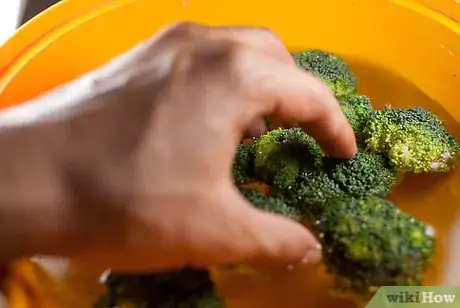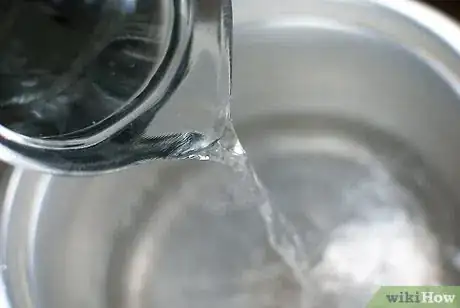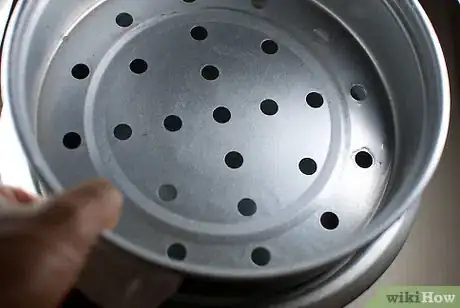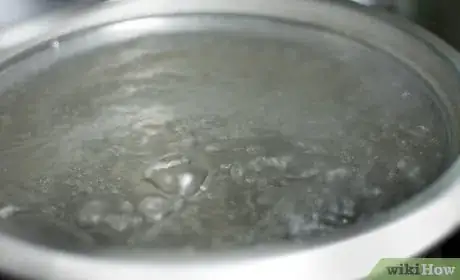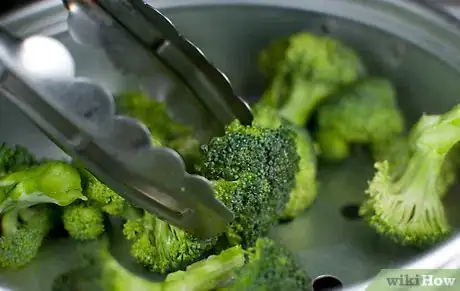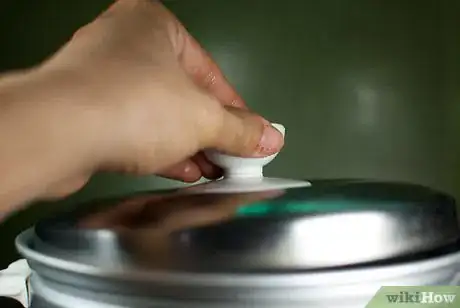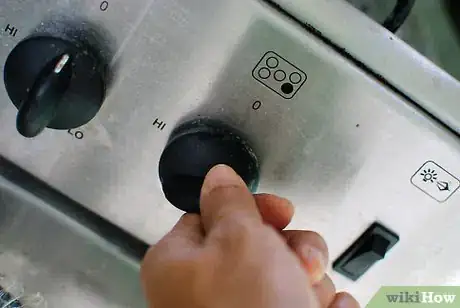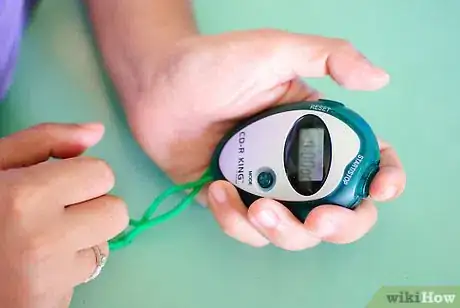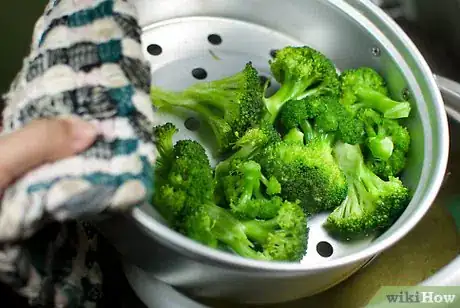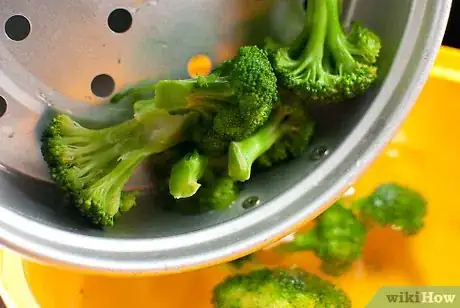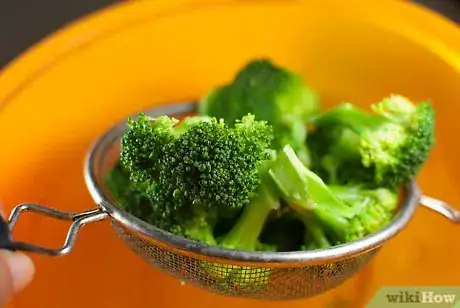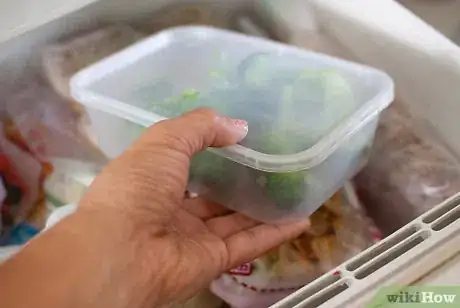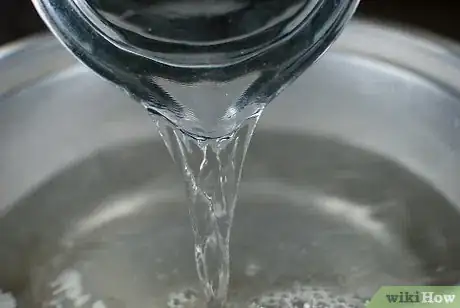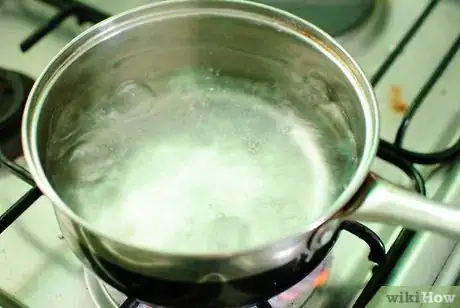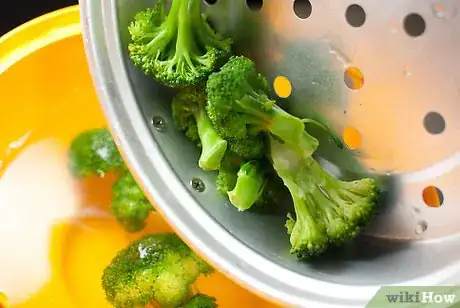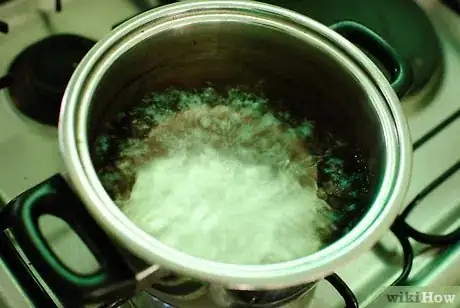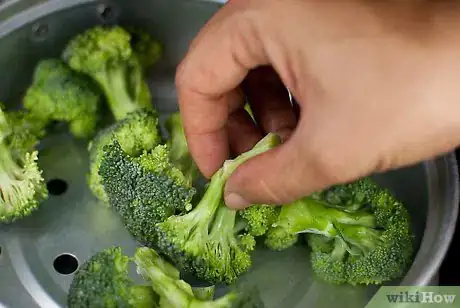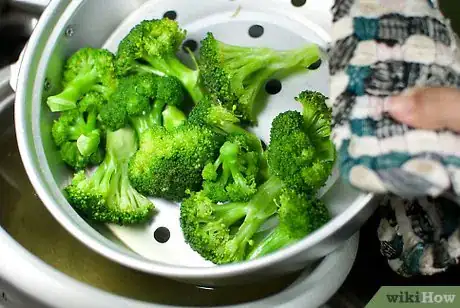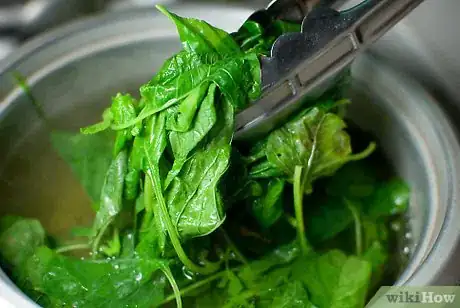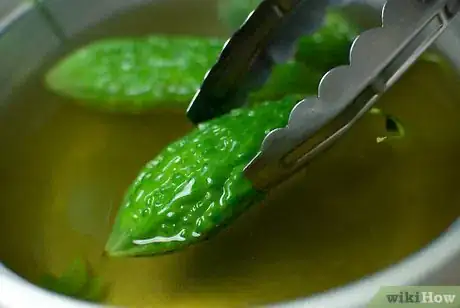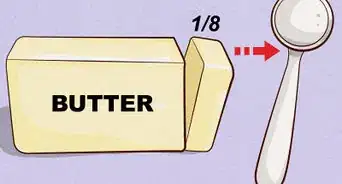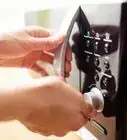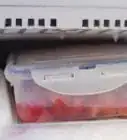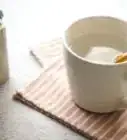This article was co-authored by Marrow Private Chefs. Marrow Private Chefs are based in Santa Rosa Beach, Florida. It is a chefs’ collaborative comprised of an ever-growing number of chefs and culinary professionals. Though regionally influenced primarily by coastal, traditional southern, cajun, and creole styles and flavors, the chefs at Marrow have a solid background in all types of cuisine with over 75 years of combined cooking experience.
This article has been viewed 89,549 times.
Blanching vegetables is part of the preservation process when freezing vegetables. Fresh vegetables are briefly cooked and then chilled in a cold water bath before they are frozen. This process helps stop enzyme growth thereby preserving food quality. Blanching is part of preserving vegetables when planning to use freezer preservation.
Steps
Boiling Water Method (Using Steamer Basket)
-
1Wash and prepare vegetables as appropriate for the selected vegetable.
-
2Pour 1 gallon of water into a pot.Advertisement
-
3Add a steamer basket to the pot.
-
4Bring to a rolling boil.
-
5Add 1 pound of vegetables. Make sure all the vegetables are put into the basket in a single layer. This is done for even cooking.
-
6Cover with a lid.
-
7Bring the water back to a boil within 1 minute.
-
8Blanch for specified time.
-
9Remove blanched vegetables from boiling water.
-
10Immediately place vegetables in ice cold water or in clean sink with running cold water. This is called shocking the vegetables.
-
11Drain.
-
12Freeze. Most cooks freeze vegetables in a single layer and then place in a freezer container. This makes it easier to use what you need when it comes time to use the frozen vegetable.
Boiling Water Method (No Steamer Basket)
-
1Use a lot of water. Use 2.8 litres/ 3 US quarts (3,000 ml) of water per 450 g / 1 pound of vegetables. There needs to be enough water to allow the vegetables to cook quickly; less water would cause the vegetables to stew and they will become limp, losing color, texture, and nutrition.
-
2Cook the vegetables without a cover. It is fine to cover the pot when bringing the water to the boil but the blanching part should be done without the lid. Otherwise, you will trap the volatile acids released by the vegetables during cooking and this will cause the vegetables to become limp and deteriorate in color.
-
3Keep it at a high heat level. Boiling water is important for keeping the green vegetables in top condition. The vegetables should be cooked as quickly as possible and boiling water will enable this.
-
4Test if cooked as explained below ("Blanching Time Chart").
-
5Serve immediately. Drain and serve. Don't leave the vegetables to sit or they're freshness will deteriorate as they keep "cooking". If you must leave them rather than serve them immediately, plunge them into ice water and serve reheated or cold later (as explained above).
Steam Method
Blanching Time Chart
-
1Test for doneness. To know when a vegetable is cooked by blanching, use a slotted spoon to remove a piece from the boiling water and taste it. If the texture is to your liking, it is done. As a general guide:
- Leaf vegetables - removed and drain as soon as they stop being stiff
- Tough greens, or strong-tasting greens - cook for up to 5 minutes, long enough to soften their texture and improve the flavor.
-
2Use these general time guides to help you:
- Asparagus, 4 minutes for a large spear
- Green Beans, 3 minutes
- Broccoli, 3 minutes (boiling water) 5 minutes (steamed)
- Brussels Sprouts, 5 minutes for a large head
- Carrots, small, 5 minutes
- Carrots, sliced, 3 minutes
- Corn, large ear, 11 minutes
- Corn, kernels, 4 minutes
- Green Peas, 1 1/2 minutes
- New Potatoes, 3 to 5 minutes
- Summer Squash, 3 minutes
- Cabbage 30 seconds to 2 minutes
Community Q&A
-
QuestionDo I use the same method for frozen vegatables?
 MicheleTop AnswererNo, it's not necessary. Frozen vegetables are blanched prior to freezing.
MicheleTop AnswererNo, it's not necessary. Frozen vegetables are blanched prior to freezing. -
QuestionDo you salt the water?
 Community AnswerIt is not necessary, the vegetables are not in the water long enough to pick up the flavor. But salt will cause the water to boil at a higher temperature, which means it needs slightly less blanching time.
Community AnswerIt is not necessary, the vegetables are not in the water long enough to pick up the flavor. But salt will cause the water to boil at a higher temperature, which means it needs slightly less blanching time.
Things You'll Need
- A large pot
- Steaming basket
- Large container to hold ice water or use a clean sink and cool running water
About This Article
To blanch vegetables, first add about 1-2 inches (2.5 - 5 cm) of water to a pot and fill a bowl with ice water. To blanch your vegetables without a steamer basket, bring the water to a rolling boil and add your vegetables to the pot. Let the vegetables cook in the pot uncovered for about 3-5 minutes, depending on the amount and type. When the time is up, remove your vegetables from the pot and submerge them in the bowl of ice water to stop the cooking process. To blanch vegetables with a steamer basket, add 1-2 inches (2.5 - 5 cm) of water to the pot and bring it to a boil. Place the steamer basket inside and add the vegetables. Cover the pot, and let the vegetables cook for about 3-5 minutes, again depending on the size and type. When the time is up, submerge your vegetables in a bowl of ice water. Serve or store your blanced vegetables in the freezer for later. As always, exercise caution when using a knife to avoid injury. If you want to learn how to use a steamer basket to blanch your vegetables, keep reading the article!
